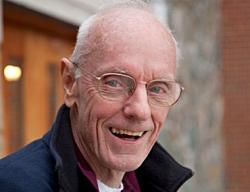Something Worth Living and Losing For
I?hadn’t?seen a movie in months and had almost forgotten how films can be a tonic for the spirit. Earlier this week it was ?Gangster Squad,? set in Los Angeles in the late ?40s when gangs first threatened to steal the soul of the city. I suppose you could have put the underground police squad, fighting against big odds to undermine Mickey Cohen, the mob boss who wanted to own everything, on horses and given them cowboy hats. The Magnificent Seven (for those old enough to remember them) ride again. It was good against evil. ?Good? in this case was a team of war vets and other prickly individuals who decided that they?didn’t?want to see their city lost. Sometimes we need those white and black hats, if only to reassure ourselves that there are still causes worth losing life and family for.
But tonight?s movie, the musical ?Les Miserables,? was more than a pick-me-up.? For me it was the confirmation of a vocation. A half century ago, as I was ready to leave for Micronesia to begin teaching at Xavier High School, before I had ever read Victor Hugo?s novel, I found an excerpt in an anthology of English literature for high school students. In ?The Bishop?s Candlesticks,? a French bishop who had put up a homeless man for the night, found all his silver missing the next morning. When the gendarmes appeared at his door the next day with the thief in tow, the bishop assured them that he had given the man his silver and added to his loot the two silver candlesticks that he had ?forgotten? to pack with the other objects.? Even for a man who had spent nineteen years in a French prison hardening his heart, this generosity was a life-changing experience.
The rest of the movie is Valjean ?passing forward? the simple act of kindness to others, but always just a step ahead of the policeman who is determined to put him away again for Valjean’s parole violation years before. The visuals of the move are stunning at times, but you won?t leave the theater humming the music that Russell Crowe and Hugh Jackman sing. It?doesn’t?matter, though. You?ll be buoyed up by the drama of it all, dated maybe but still uplifting. Can a simple act of kindness really change a life that way?? And can that selflessness be recycled many times over to turn around other people?s lives?
I was touched because this contemporary movie adaptation of a book written in a far simpler age confirms faith in the power of love. Just as the gospels say, it can retrieve sunken lives and renew shrunken souls. Get out from behind those barricades, whatever type they may be, and take a risk or two. Who knows? You, too, like Jean Valjean, may change a few lives.
We old duffs who came of age in the 1960s are used to hurdling barricades, but this might have gone out of fashion in church circles these days. We seem to be obsessed with correctness?in doctrinal formulas, in liturgical rubrics, and in hierarchical respect forms. There?s nothing wrong with orthodoxy, but I can?t imagine it reshaping lives the way the loving white lie of an aging bishop did in the movie. The film draws us back to the heart of the matter: love is what matters most. In this much at least the church and the secular world should be able to agree. My vocation, as I see it, is to add the postscript: By the way, God is love.






